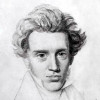“ No man follows his religion in all things, even if his religion is true; most people have hardly any religion, and they do not in the least follow what they have ”
Jean-Jacques Rousseau, Emile, or On Education (1762). copy citation
| Author | Jean-Jacques Rousseau |
|---|---|
| Source | Emile, or On Education |
| Topic | religion |
| Date | 1762 |
| Language | English |
| Reference | |
| Note | Translated by Barbara Foxley |
| Weblink | http://www.gutenberg.org/cache/epub/5427/pg5427-images.html |
Context
“It remains to be seen whether philosophy, safely enthroned, could control successfully man's petty vanity, his self-interest, his ambition, all the lesser passions of mankind, and whether it would practise that sweet humanity which it boasts of, pen in hand.—In theory, there is no good which philosophy can bring about which is not equally secured by religion, while religion secures much that philosophy cannot secure.—In practice, it is another matter; but still we must put it to the proof. No man follows his religion in all things, even if his religion is true; most people have hardly any religion, and they do not in the least follow what they have; that is still more true; but still there are some people who have a religion and follow it, at least to some extent; and beyond doubt religious motives do prevent them from wrong-doing, and win from them virtues, praiseworthy actions, which would not have existed but for these motives.—A monk denies that money was entrusted to him;”
source



